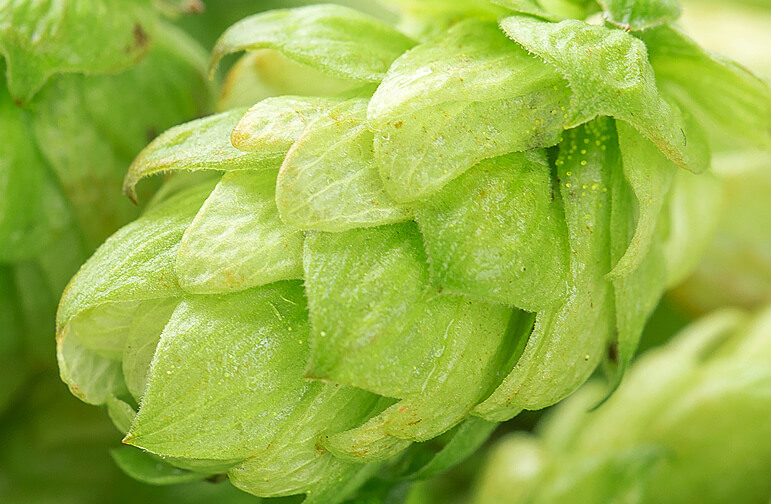Hops are essential to beer. They are the spice that has the power to change the beer flavor and aroma in many different ways. Hops appear in many forms and shapes. For a brewer, each of these forms has its good sides as well as some challenging ones.
Whole hops are the most commonly recognized form. Once the hops are picked, they are dried and packed together into huge, almost 100 kg heavy bales. The whole hops are great for beer flavor, but the storage can be difficult. They age faster than pellets and they tend to oxidize more quickly, which affects the beer in a bad way.
Pellets are nowadays the most popular hop form used for brewing. This is also the preferred hop form at Staropramen. In order to produce them, whole hops are compressed, shredded, hammered and molded into tiny pellets. This process allows hops to preserve the hop leaf and its many important flavor components while coming in a more brewer-friendly format. Pellets are usually vacuum-packed in 5kg or 25 kg bags so they can be easily stored, weighed and handled for brewing. Although they appear less visually attractive than whole hops or fresh hops, the pellets in some ways revolutionized brewing, because they made life easier for the brewer. The most important challenge when it comes to hops is to keep them fresh. Hop pellets in vacuum bags, if stored properly in a cold place, can remain fresh for several years. In short, hop pellets are reliable and require low maintenance.
Hop extracts are highly concentrated hop oils that come in liquid form. Their main advantage is that they occupy less space and are easy to transport and store. One obvious challenge with extracts is that they are messy and difficult to use because of their sticky liquid form. Some brewers feel that they are better for bittering than for aroma and flavor, but this really depends on the type of extracts used.
Fresh hops are hops that are sometimes used for brewing specialty beers. They are sent straight to the brewery after the harvest without drying or bailing, preferably transported in a cold temperature environment to maintain freshness. Because of such delicacy, few breweries occasionally use them.
As previously mentioned, hops are delicate to handle so proper storage at a low temperature is essential for them to keep their delicate character intact. If not stored and sealed properly, hops begin to lose their bittering and aroma character rapidly, no matter what the form is, especially if they are kept at room or even regular fridge temperature. If that is the case, the hop utilization diminishes, which means that the beer is less bitter and has less flavor and aroma than originally intended. Knowing what each form of hops can bring to the beer and how to handle it is essential for every brewer. Knowing that, if properly stored, the hops will perform according to their specifications, is essential in making consistently great beer.
Image

Beerpedia
Image

